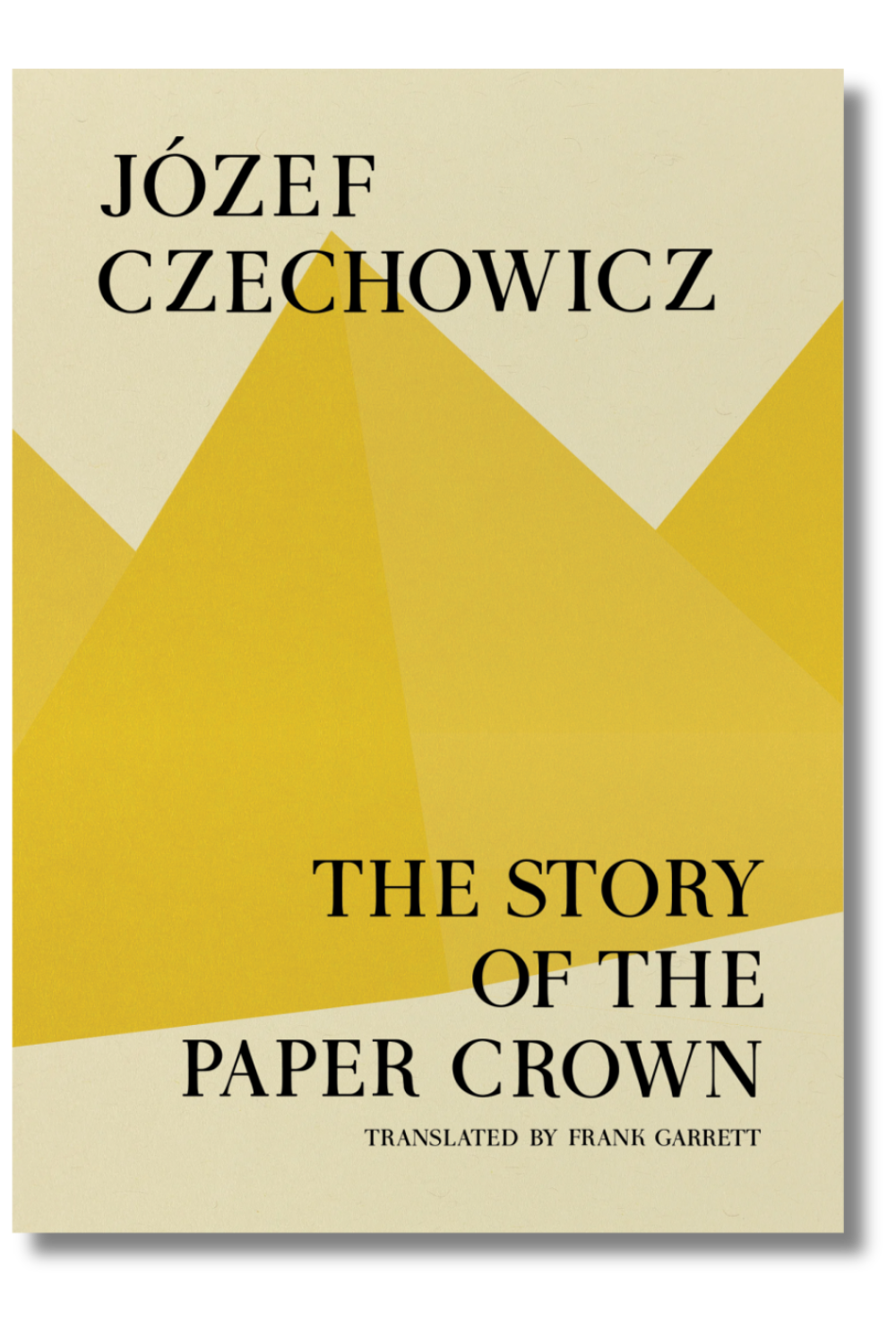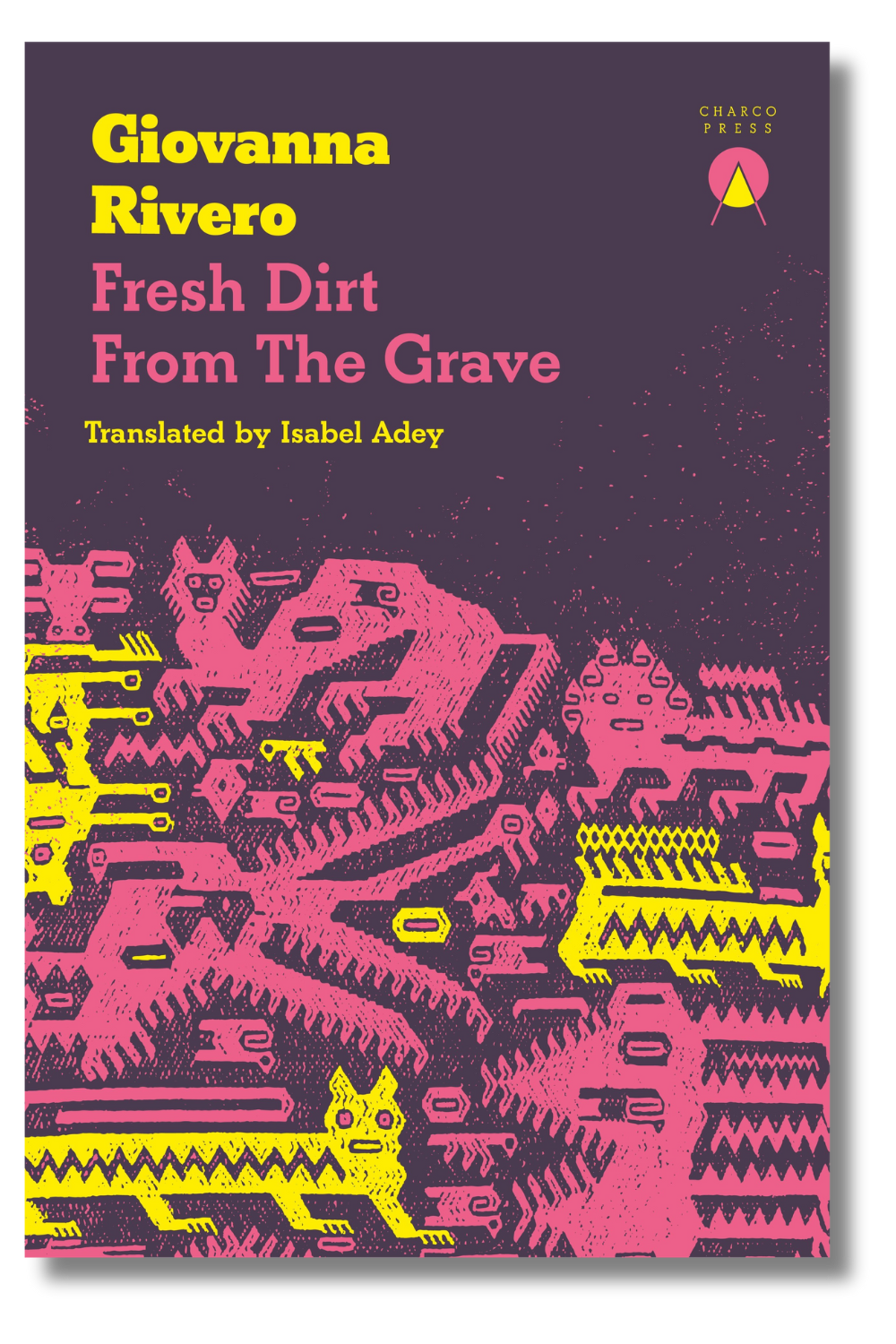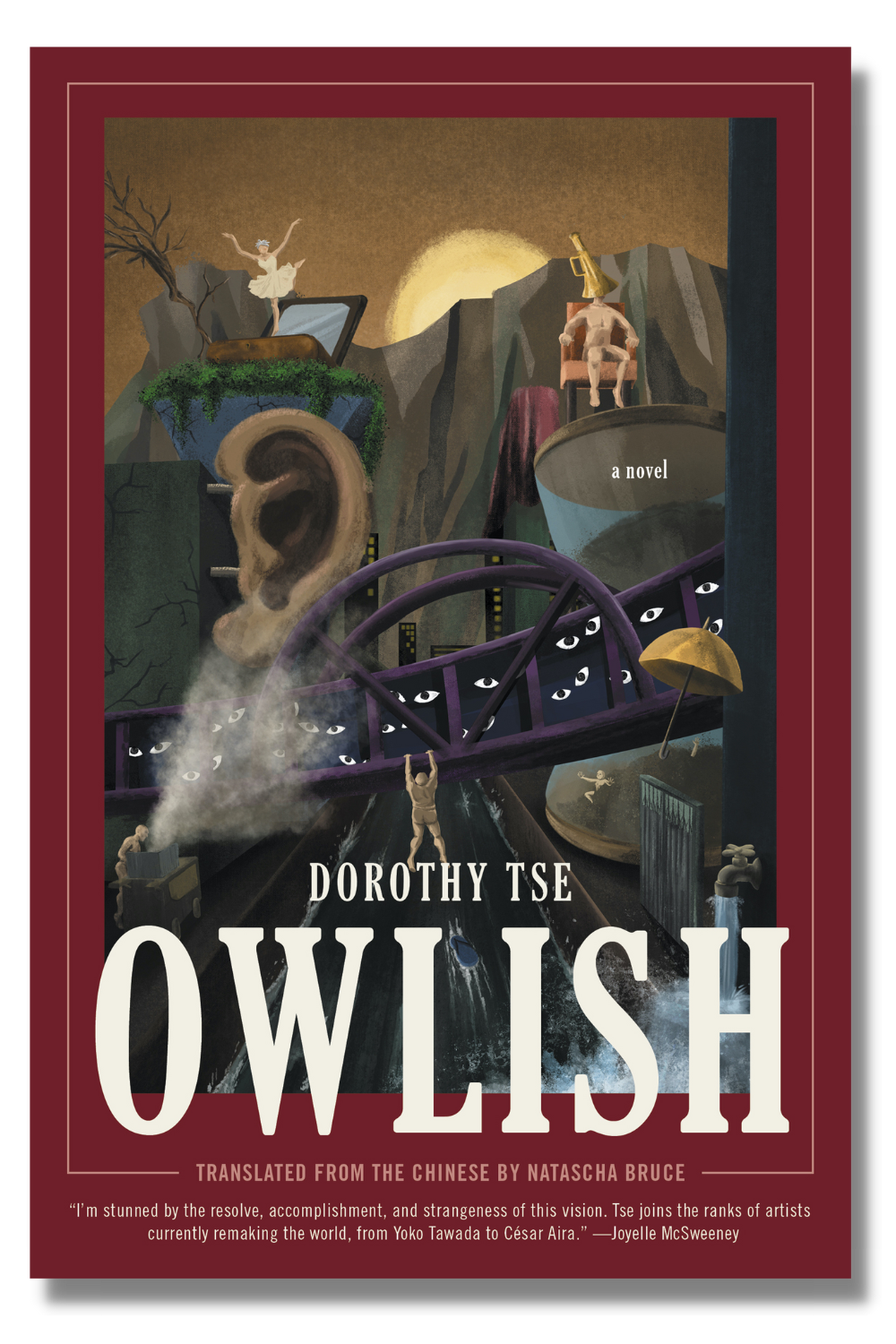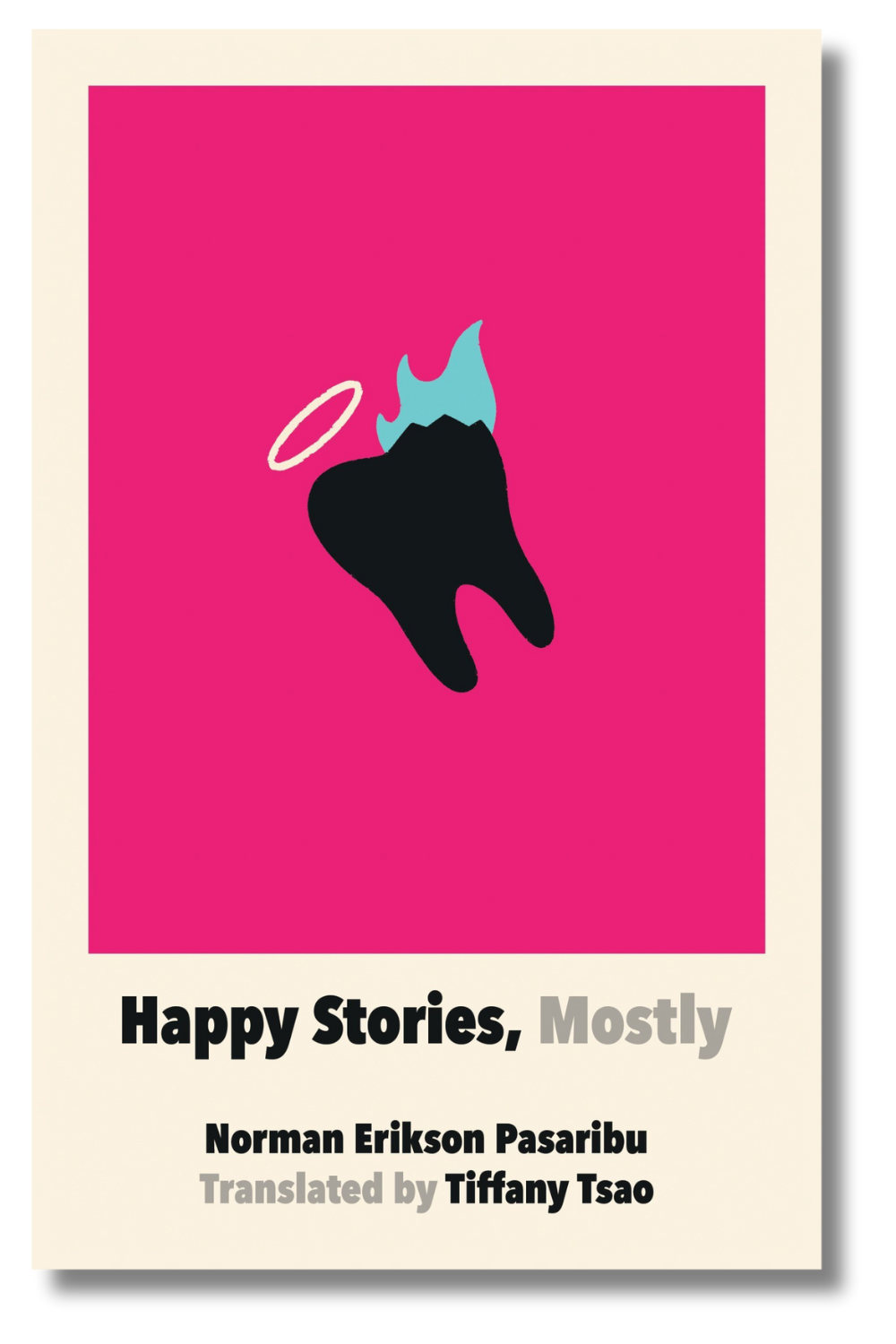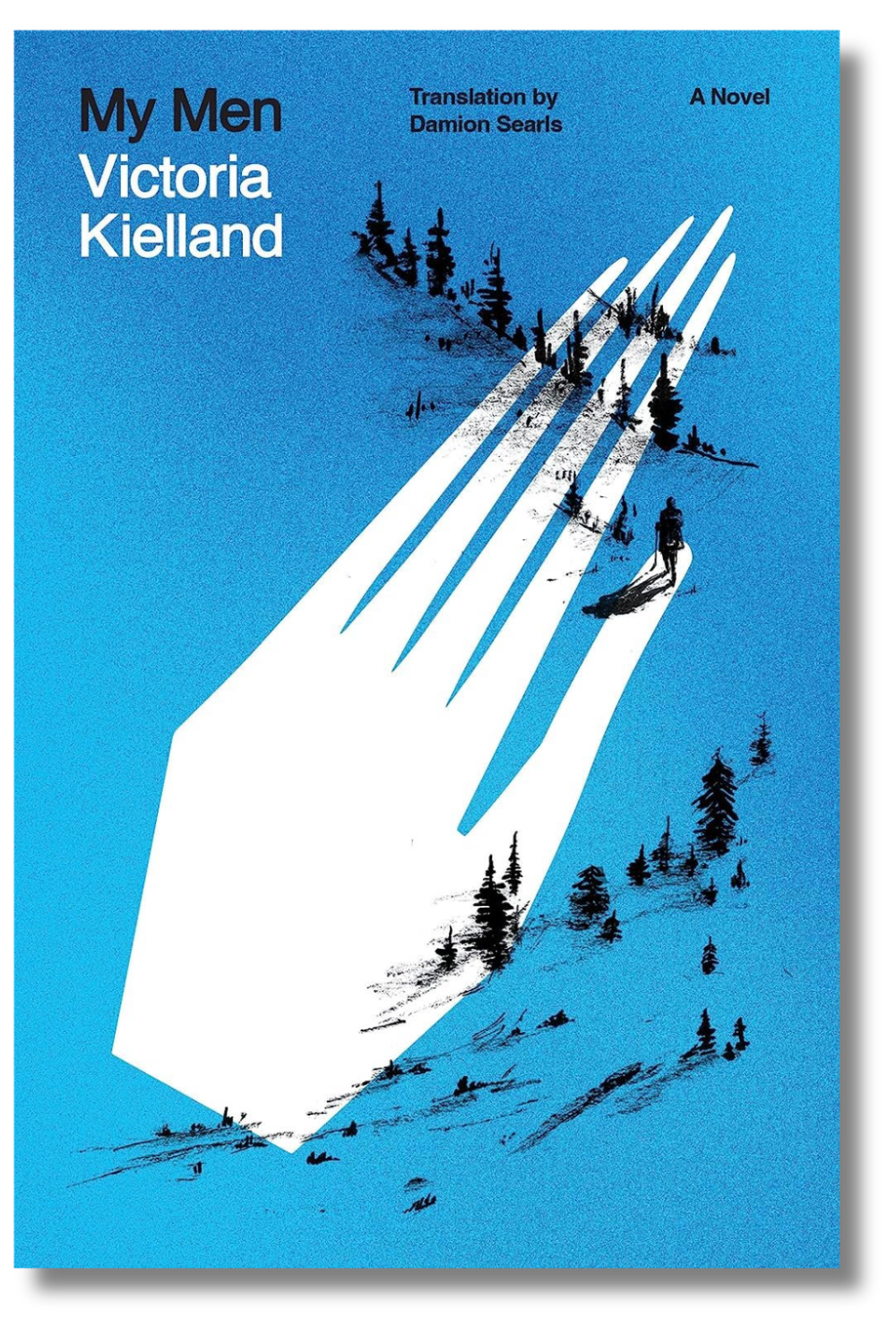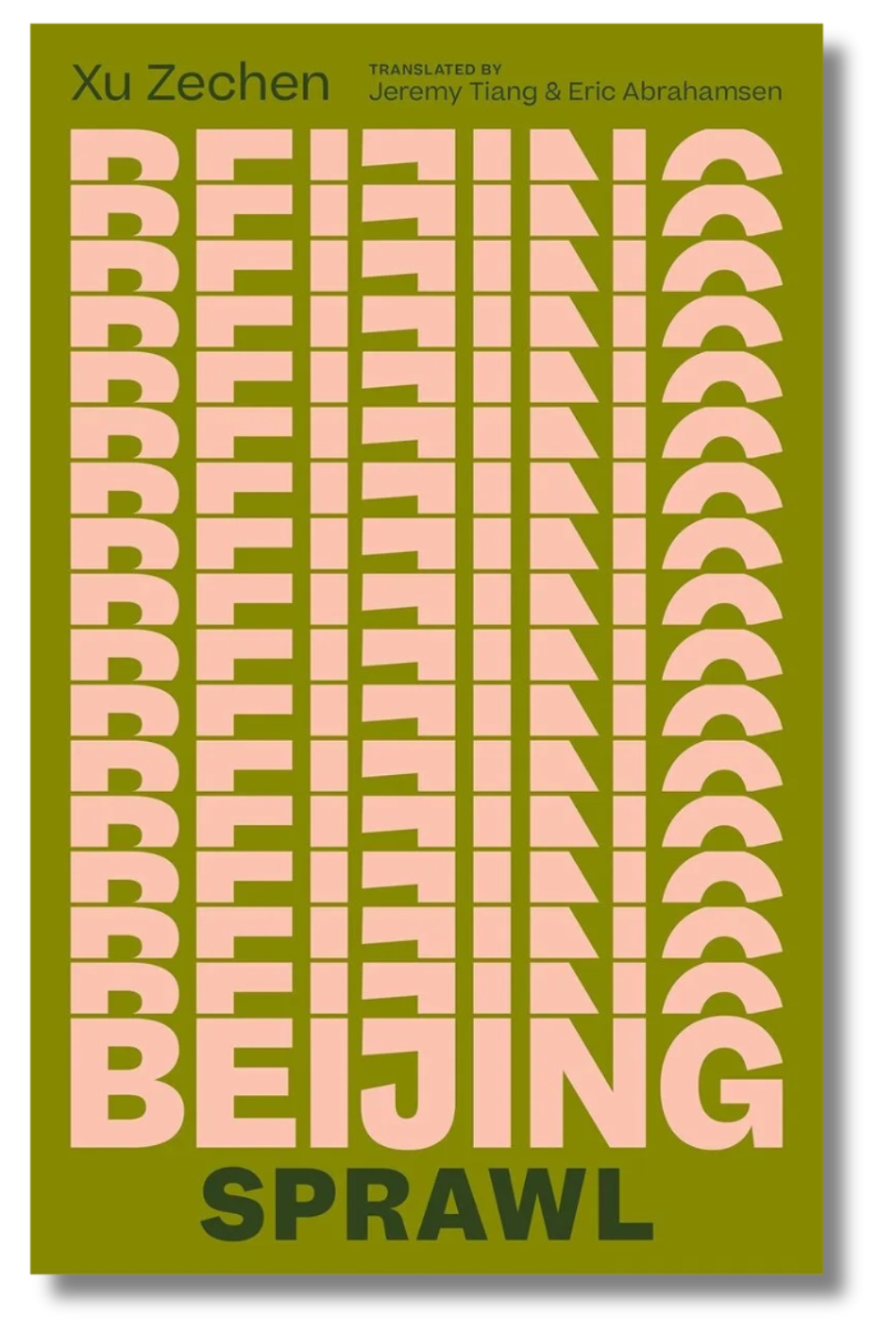From Sublunary Editions | The Story of the Paper Crown by Józef Czechowicz, translated from the Polish by Frank Garrett | Fiction | 80 pages | ISBN 9781955190619 | US$16.00
What the publisher says: “[T]his story gives an account of Henryk, a sensitive young man who, through philosophical debates, sex, religious visions, and febrile fantasies, undertakes a journey whose ultimate purpose is to come to terms with his homosexuality as well as to build a foundation for an authentic life.”
What I say: Józef Czechowicz was all of twenty years old when he wrote 1923’s The Story of the Paper Crown—which makes the achievement of this novella that much more impressive. In this story, reality is layered and stories nestle within stories; it’s at once the tale of a young man seeking acceptance for his sexuality and a thinker wrestling with his country’s religious and intellectual heritage. It’s a slim volume that carries the weight of history.
From Charco Press | Fresh Dirt from the Grave by Giovanna Rivero, translated from the Spanish by Isabel Adey | Fiction | 155 pages | ISBN 9781913867515 | US$16.95
What the publisher says: “In Fresh Dirt from the Grave, a hillside is ‘an emerald saddle teeming with evil and beauty.’ It is this collision of harshness and tenderness that animates Giovanna Rivero’s short stories, where no degree of darkness (buried bodies, lost children, wild paroxysms of violence) can take away from the gentleness she shows all violated creatures.”
What Publishers Weekly says: “The assured if meandering collection from Bolivian author Rivero, her English-language debut, examines the relationships between predator and prey in North and South America. . . . Fans of Latin American literature will be glad to encounter this worthy writer.”
What I say: “You say the two of you drank that blood. You say my son didn’t want to drink that blood.” Those two sentences, from “Fish, Turtle, Vulture,” give a sense of both the stark horrors found in this collection and the seemingly effortless way Rivero, in Adey’s translation, illustrates the web of connections among her characters. These are visceral tales of betrayal both personal and societal, some of which cross over into the realm of the uncanny.
From Graywolf Press | Owlish by Dorothy Tse, translated from the Chinese by Natascha Bruce | Fiction | 224 pages | ISBN 9781644452356 | US$16.00
What the publisher says: “In a city called Nevers, there lives a professor of literature called Q. He has a dull marriage and a lackluster career, but also a scrumptious collection of antique dolls locked away in his cupboard. And soon Q lands his crowning acquisition: a music box ballerina named Aliss who has tantalizingly sprung to life.”
What Louisa Lim at the New York Times says: “Dorothy Tse’s Owlish is set in the fictional Nevers, a stand-in for Hong Kong, a city of shadows whose slick, ‘shimmering, mirrored facades’ hide layers of sinister underworld. . . . For such a wildly inventive read, Owlish veers disorientingly close to reality.”
What I say: Pitched somewhere in tone between Kelly Link’s malleable realities and the hallucinatory cities of Laird Hunt’s 2009 novel Ray of the Star, Owlish is nearly impossible to pin down. This is a book in which dream logic and the slow encroachment of authoritarianism coexist, and where desire can take unexpected forms. It’s also a novel informed by an array of recent and not-so-recent history, from Hong Kong’s history to the Occupy movement to World War II internment camps. This combination makes for a haunting book that lingers.
From Feminist Press | Happy Stories, Mostly by Norman Erikson Pasaribu, translated from the Indonesian by Tiffany Tsao | Fiction | 160 pages | ISBN 9781952177057 | US$16.95
What the publisher says: “Queer Indonesian writer Norman Erikson Pasaribu blends together speculative fiction and dark absurdism, drawing from Batak and Christian cultural elements. . . . These twelve short stories ask what it means to be almost happy—to nearly find joy, to sort of be accepted, but to never fully grasp one’s desire. Joy shimmers on the horizon, just out of reach.”
What Publishers Weekly says: “Poet Pasaribu makes their English-language debut with a remarkable collection of speculative and absurdist fiction incorporating Batak and Christian culture. . . . This is sure to get people talking.”
What I say: The stories in this collection range in tone from memorably lived-in and realistic to uncanny and ethereal. For this reader, the most compelling work in Happy Stories, Mostly is “The True Story of the Story of the Giant,” which blends a realistic-seeming tale of research and family with an element that veers far from anything resembling realism: a staggeringly tall man who may have lived in the recent past. In telling this story, Pasaribu explores questions of faith, desire, and memory; the result is an immersive story that makes the impossible feel true.
From Astra Publishing House | My Men by Victoria Kielland, translated from the Norwegian by Damion Searls | Fiction | 208 pages | ISBN 9781662601927 | US$25.00
What the publisher says: “From Victoria Kielland, a rising star of Norwegian literature, comes My Men, a literary reimagining of the harrowing true story of Belle Gunness, who slowly but irreversibly turned to senseless murder for release from her pain, becoming America’s first known female serial killer. In pursuit of her American Dream, Kielland’s Belle grows increasingly alienated, ruthless, and perversely compelling.”
What California Reading says: “This is a poetic, heartbreaking novel about a woman, Belle, who has endured a brutal act of misogynistic violence, and emigrates from Norway to America to start a new life. Once there, she continues her quest for unconditional love, only to find that no one fulfills her entirely realistic expectations.”
What I say: A lot has been written about Belle Gunness, an immigrant from Norway who became infamous as one of the nation’s first serial killers. Victoria Kielland’s My Men doesn’t take a sensationalistic approach; instead, this novel provides an impressionistic version of Gunness’s story, illustrating her struggle for control over her own life and the increasingly lethal forms that control ends up taking.
From Two Lines Press | Beijing Sprawl by Xu Zechen, translated from the Chinese by Eric Abrahamsen and Jeremy Tiang | Fiction | 220 pages | ISBN 9781949641325 | US$17.95
What the publisher says: “In these connected stories translated from Chinese by Eric Abrahamsen and Jeremy Tiang, Xu’s characters observe as others like them—workers, students, drifters, and the just plain unlucky—get by the best ways they know how: by jogging excessively, herding pigeons, building cars from scraps, and holding their friends close through the miasma of so-called progress.”
What Asian Review of Books says: “People like Muyu and his friends may seem invisible in a sprawling, modern city like Beijing, but Xu and translators Tiang and Abrahamsen show that they have as much of a pulse on the city as the more well-to-do characters more typical in novels and memoirs.”
What I say: There’s a lot that’s compelling about Beijing Sprawl, from the vivid descriptions of the titular city to the unpredictability that’s habitual for many of this book’s characters—and sometimes leads them to unsettling fates. Xu Zechen’s tales of Beijing and the lives on its margins have a relationship to that city much like the one Irvine Welsh’s fiction has to Edinburgh—writing that’s at once an evocation and a demystification of the city where it’s set.
Copyright © 2023 by Tobias Carroll. All rights reserved.
Looking for more reading suggestions? Check out Tobias Carroll’s recommendations from last month.
Disclosure: Words Without Borders is an affiliate of Bookshop.org and will earn a commission if you use the links above to make a purchase.









